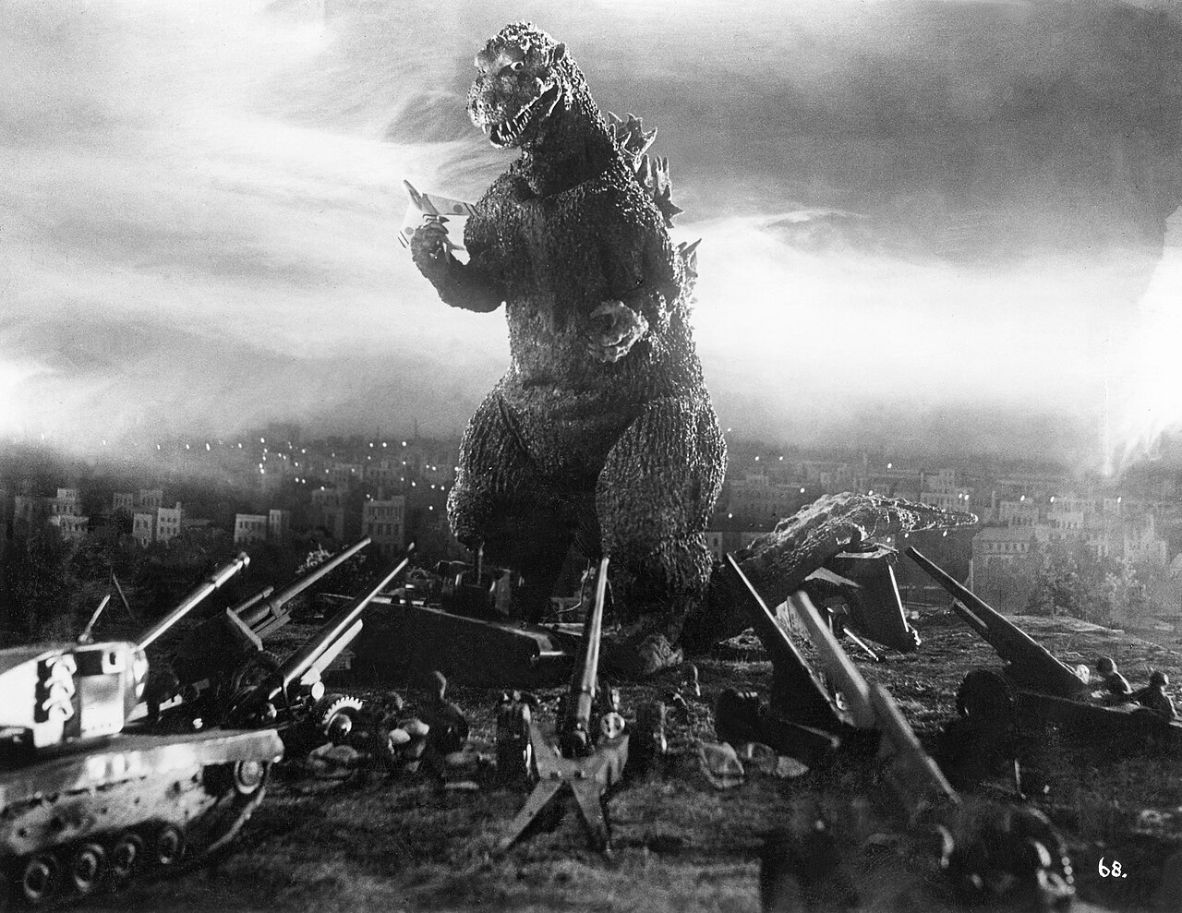Leave us a Review about your Experience for a chance to win $100.00 in store Credit
Leave us a Review about your Experience for a chance to win $100.00 in store Credit

Late in 2023 (and early 2024 for the U.S. market), the film Godzilla: Minus One released to critical and commercial success. The film is an excellent standalone story, but also serves to exemplify why Godzilla is such an evergreen and adaptable character. With enough work and attention, Japan’s most famous monster can work effectively when slotted into almost any role. He’s been portrayed as an animal, a god incarnate, a force of nature, a villain, a reckoning of past sins, a hero, and pretty much anything in-between. Despite being such a popular and long-standing character around the world, Godzilla’s forays into video games have been, at best, inconsistent.. Let’s take a look at some of the King of the Monsters’ past video game history and maybe do some wild speculation about where he could go in the future.
Godzilla Games Through the Ages
The earliest game featuring the Big G was “Godzilla” for the Commodore 64 in 1983. This very simple, grid-based strategy game had you take on the role of the Japanese Defense Force attempting to prevent the monster from destroying Tokyo. Godzilla was also featured in The Movie Monster Game for the C64 in 1986, being the only officially licensed monster amongst legally-distinct parodies of the Blob and the Stay-Puft Marshmallow Man.
Many of the subsequent titles released in the 80’s and 90’s are pretty obscure (at least in the U.S.), but most of them involved either defending cities from Godzilla and other monsters, or playing as Godzilla himself and engaging in simple battles with various monsters that were either original creations or hailing from previous Godzilla films. Unfortunately, outside of the arguably cult-classic Super Godzilla on the SNES, none of them were especially impactful or seem to have entered into the pantheon of classic games.
Many Godzilla games never saw release outside of Japan, including the Sega Dreamcast titles Godzilla: Generations and its sequel, Godzilla: Generations - Maximum Impact. Outside of hardcore fans, these games were pretty poorly received due to their repetitive and often boring nature, but have become something of a sought-after curio for Dreamcast collectors.
Godzilla Fighting Games
In 2002, Godzilla finally began to hit his stride in the gaming space with the release of Godzilla: Destroy All Monsters Melee. Released for the Nintendo GameCube and later, Xbox, the Pipeworks-developed fighting game featured a roster of 11 classic monsters, and up to four players could duke it out in destructible, 3D city environments. A simple story mode had a single player fight their way through increasingly difficult matchups and fending off an alien invasion. The game’s reception with mainstream critics settled somewhere between lukewarm and warm, but it definitely struck a chord with fans of Godzilla and his fellow monsters. There was also a more obscure Game Boy Advance companion game, Godzilla: Domination, that featured scaled down 2D gameplay and simplified mechanics. The flagship console game was an authentic celebration of many of Toho’s most popular monsters, and its success led to the production of two sequels.
Godzilla: Save the Earth, released in 2004, was a no-frills “More is MORE” sequel; it featured 6 new monsters, more maps to fight on, and a new “beam-lock” mechanic that allowed monsters to participate in a reverse tug of war with their energy beam attacks. The story mode also featured a more robust variety of activities, with some different objectives and some rail-shooter segments added. Fans welcomed the new monsters, but the lack of new features made it little more than Destroy All Monsters Melee 2.0.
Pipeworks took a final crack at the series in 2007 with Godzilla: Unleashed on PlayStation 2 and Wii. The PS2 version was more or less a retooling of Save the Earth’s mechanics, and it featured only 2 new monsters. It’s clear that most of the attention was given to the Wii version, which featured a brand new, motion-controlled combat system, all new environments, a relatively ambitious story campaign, and a gargantuan roster of 26 playable characters. Alongside popular and obscure monsters from Toho’s film catalog, two original monsters joined the fray: the crystal-covered lion monster Krystalak, and the molten rock monster Obsidious. The story mode saw some ambitious improvements as well, featuring branching paths, optional objectives, and different factions to contend or ally with. Despite the clear love and care that went into building the ideas behind the game, the mechanics are where it all falls apart. The motion controls tend to be unreliable, resulting in unintentional moves and missed combos. A lot of the game’s more ambitious features are underbaked as well, with the faction system becoming more of a nuisance than an appealing feature. But if you push through the frustration, there’s a very robust and strangely ambitious game that kaiju fans would enjoy.
In the next part of this series we will take a look at modern Godzilla games and discuss what we might look forward to when it comes to future Godzilla games. Definitely stay tuned for more!
{"one"=>"Select 2 or 3 items to compare", "other"=>"{{ count }} of 3 items selected"}
Leave a comment